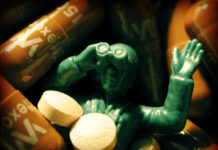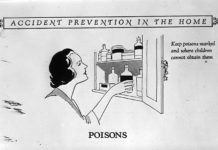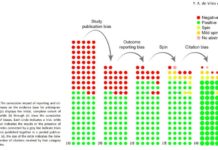New Research on Patient-Centered Deprescribing for Antipsychotics
Researchers review the risks and benefits of deprescribing from antipsychotic drugs and advocate for a patient-centered approach to tapering.
Out-of-home Placements for Children Increase Odds of Psychiatric Issues
When controlling for social and family characteristics, separating children from parents into out-of-home care increases psychiatric issues, prescriptions, and criminal activity.
Improving the Efficacy of Mindfulness in Schools
New research examines factors that make mindfulness interventions in school most effective for adolescent’s mental health outcomes.
Study Finds Greening Urban Land Improves Mental Health
Remediating dilapidated physical environments in urban settings can contribute to better mental health.
Researcher Challenges Clinical Effectiveness of Antidepressants
A new article in BMJ Evidence-Based Medicine addresses common misinterpretations of the efficacy research on antidepressants.
Challenging Resilience as a Buzzword: Toward a Contextualized Resilience Model
Researcher Dr. Silke Schwarz highlights how Western psychology’s construction of individual resilience deflects emphasized individual pathology and deflects efforts at structural change.
Study Finds First-Episode Psychosis Patients Fare Better with Vitamin D
Researchers examine the relationship between vitamin D and clinical and cognitive symptoms in first-episode psychosis.
Exploring the Tension Between Educational Psychology and Child Psychiatry
Researchers explore efforts to integrate educational psychology and child psychiatry.
Hallucinations Reported as Side Effect of ADHD Medication
Hallucinations and other psychotic symptoms have been reported after methylphenidate (Ritalin) treatment for ADHD.
Researcher Critically Examines Movements for Global Mental Health
China Mills raises concerns that global mental health movements obscure social determinants of health and naturalize Western mental health concepts.
Research Emphasizes Association Between Inflammation, Diet, and Depression
Study finds adults with a pro-inflammatory diet have a greater incidence of depression.
What Stops People From Using Exercise to Treat Depression?
New research examines important factors of adherence when prescribing exercise to treat depression.
Review Examines Causes and Consequences of Overdiagnosis in Primary Care
A new review in BMJ investigates overdiagnosis in primary care settings, where the majority of mental health care is provided in the U.S.
Large Increase in Poison Control Calls for Children Taking ADHD Drugs
New data shows that calls to US poison control centers have increased significantly for children taking stimulant ADHD drugs.
Prolonged Exposure Reduces Dropout Rates and Symptoms for Individuals with Complex Trauma
New study finds that intensive prolonged exposure is a promising treatment option for individuals with multiple trauma experiences.
SSRI Exposure in Pregnancy Alters Fetal Neurodevelopment
Alterations in gray matter and white matter development found in infants of mothers taking SSRI antidepressants during pregnancy.
Publication Bias Inflates Perceived Efficacy of Depression Treatments, Study Finds
Researchers report the cumulative effects of major biases on the apparent efficacy of antidepressant and psychotherapy treatments.
Can Education Level Predict Prescription Drug Misuse in Young Adults?
A new study examines the extent to which patterns in prescription drug misuse and substance use disorder symptoms can be predicted by education level
Sociologist Questions Effectiveness and Ethics of Mental Health Services
Medical sociologist David Pilgrim argues that mental health care is neither effective nor “kindly,” as it often relies on flawed research and ineffective treatments.
Peer Support Reduces Chances of Psychiatric Readmission
A randomized control trial finds that receiving peer support from individuals with similar lived experiences reduces one’s risk of readmission to an acute crisis unit.
Call to Monitor Adverse Effects of Antipsychotics in Youth
Researchers point to the risks of using antipsychotics with youth and caution against the practice.
Digital Media Use Linked to Increase in ADHD Symptoms
Increased frequency of digital media use can increase symptoms of ADHD among adolescents, study finds.
New Study Investigates Negative Side Effects of Therapy
Researchers find that nearly half of cognitive behavioral therapy (CBT) patients experience treatment side effects.
Study Shows Success With Reduced Antipsychotic Use
People who reduced antipsychotic use by tapering were doing just as well after five years as those who continued using the drugs.
Lack of Efficacy for Current Physical Activity Interventions in Persons Diagnosed with Severe Mental...
Review finds a need for more rigorous research to increase physical activity in people diagnosed with a severe mental illness (SMI).

































